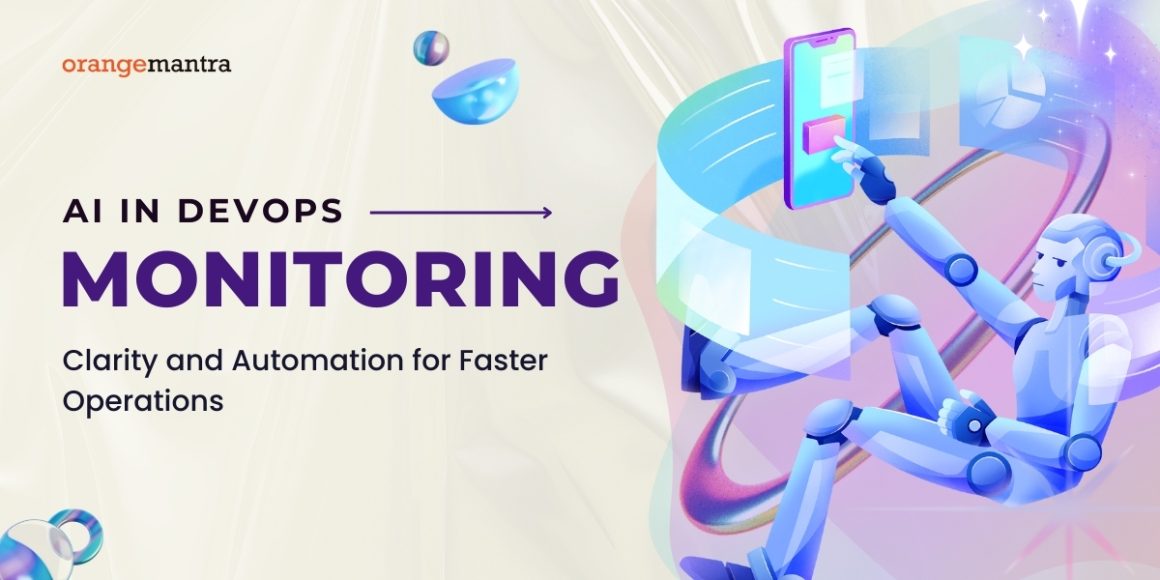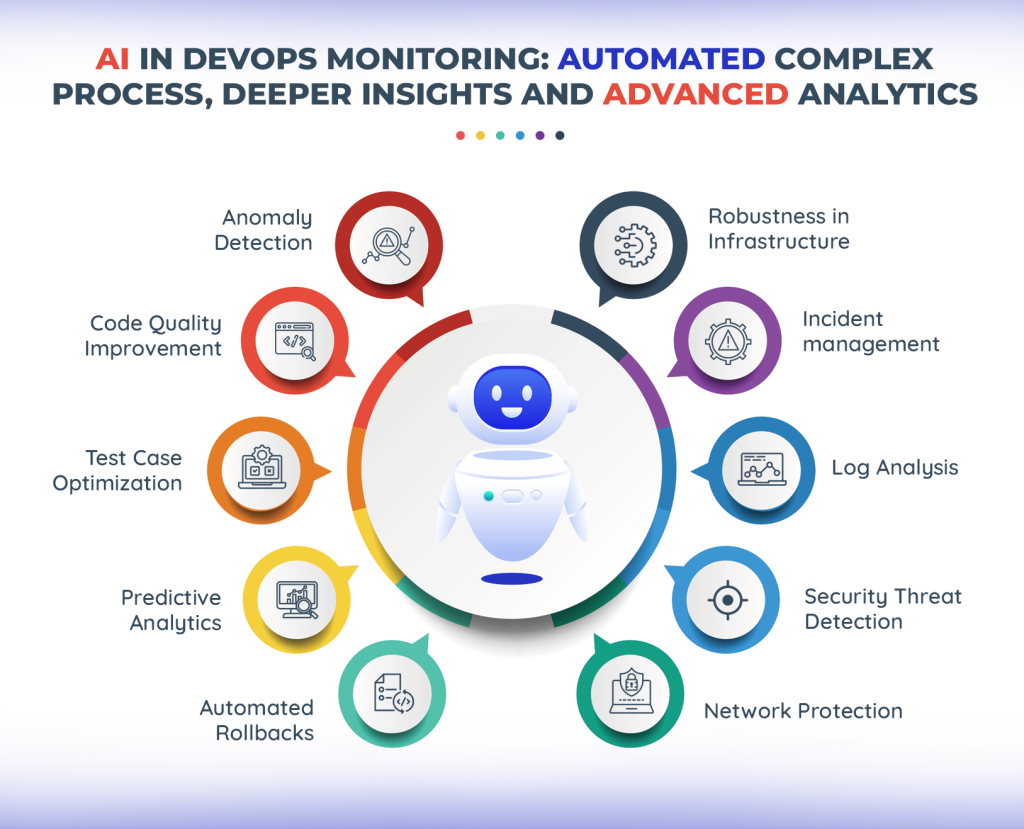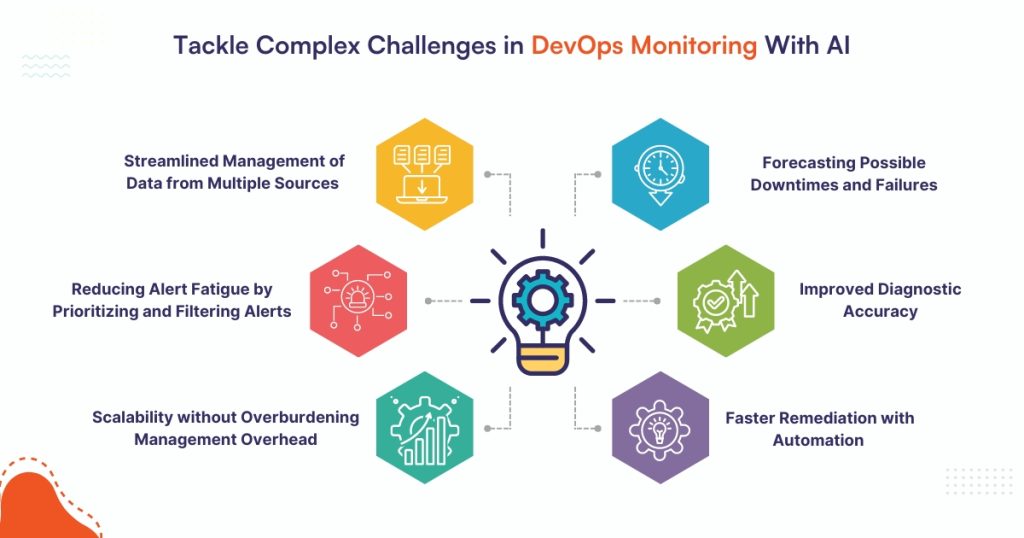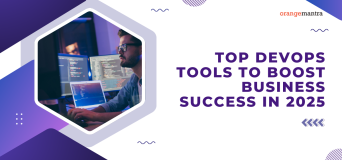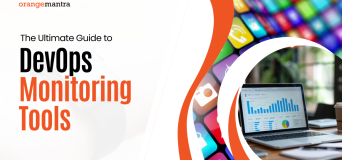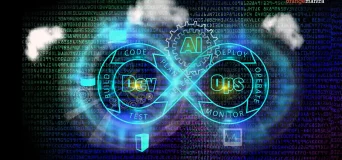Monitoring in DevOps is one of the core functions in DevOps. It ensures reliability, performance, and security of your development cycle, therefore helping you deliver a better user experience with faster and efficient operations and decisions, and lesser risks.
However, it is easier said than done. Monitoring your DevOps is complex and tedious. With the advancements in technology and the growth in systems, the sheer volume of metrics and logs that need to be analyzed become extremely overwhelming for traditional monitoring tools and processes.
This is where Artificial Intelligence (AI) is poised to make a difference. It will bring intelligent automation that is needed to streamline monitoring function.
In this blog, we will discuss how AI can alter the monitoring practices in DevOps and bring significant business benefits.
DevOps Monitoring Importance: The Nervous System of Your Business
DevOps monitoring holds a very important role in your business. It is just like our nervous system that continuously monitors every part of the body and relays information to the brain. Thereby helps the body in timely responses to pain, changes in environment, or internal malfunctions.
Similarly, DevOps solutions for monitoring continuously tracks the health and performance of your organization’s digital infrastructure. In case of any issue, it alerts the necessary teams before it becomes critical. This way, DevOps solutions for monitoring brings smoothness and efficiency to business operations.
Top 3 Monitoring Challenges that Impact Your Business
Complexity of Modern Infrastructures
With the advancement in technology, modern IT environments are increasingly growing complex. There are multi-cloud deployments wherein services are distributed across various cloud platforms, each with different operating standards and interfaces. Then there are microservices that operate independently but must communicate effectively, making monitoring and managing these interactions complex.
Lastly, there are container orchestration systems like Kubernetes that manage the deployment, scaling, and networking of containers, adding layers of dynamic operations to oversee.
You can see how complicated and sophisticated the system has become. Not only does this demand a high level of coordination and oversight, but it also requires advanced tools and expertise to ensure smooth operation and maintenance.
This complexity can obscure visibility and make monitoring more challenging, potentially leading to inefficiencies and errors that directly impact service delivery and user experience.
Volume of Data
The monitoring process generates data from various sources. It can be in the form of application logs, server metrics, network traffic, error reports, and user activity tracking.
So, depending upon the complexity and scale of the DevOps system, the data can even reach terabytes per day for large organizations.
This data, from the various streams mentioned above, forms a massive dataset that is used for performance analysis, issue resolution, and predictive insights.
However, with the surge in data generation, handling such complex systems becomes increasingly overwhelming, leading to multiples challenges:
- Data management and analysis becomes increasing challenging
- The decision-making process slows down
- Several game-changing insights are missed
- Hampered operational efficiency and strategic planning.
Intensive Remediation
Manual remedial processes are yet another challenge in monitoring. They are time consuming (high mean time to repair), prone to errors, and may prove to be a financial burden.
To start with, given the complexity of the DevOps solutions, identifying and fixing issues becomes time intensive. It requires dealing with through intricate configurations and dependencies which is humanly difficult, not to mention the increased chance of errors. This delayed response to issues proves costly to business as well, leading to prolonged downtime or suboptimal performance.
Further, if you want to avoid this delay, you need to involve skilled personnel continuously monitoring and solving these issues. Thereby making the process resource-intensive, which increases operational costs and diverts valuable manpower from strategic tasks to operational troubleshooting.
AI in DevOps Monitoring – The AAAs
Implementing AI brings DevOps automation, analytics and acceleration needed to gain a business edge. It automates complex tasks to ease them, brings analytics for faster decisions and accelerates high quality coding process.
As this section explains all these aspects in detail, if you are worried about how to implement it, better hire DevOps engineer from a staff augmentation provider. It will help progress without bearing the burden of full-time hiring.
Automation of Complex Processes
DevOps automation includes monitoring automation. AI takes up intricate and repetitive tasks in the DevOps lifecycle to reduce the need for manual intervention. This will speed up operations including issue resolution and increased accuracy. Here are the aspects that AI automates.
Anomaly Detection: AI is capable of automatically identifying unusual patterns deviating from normal behavior without predefined thresholds. For example, in a cloud-based application environment, it can detect an unusual spike in API response times or even a subtle increase in error rates, the preset limits notwithstanding.
This is because they are anomalous to typical operational data on which AI was trained upon. This significantly contributes to early detection and enabling proactive remediation before they turn into business nightmare.
Automated Rollbacks: Automatically reverts changes if it suspects a problem after a the new deployment. This it does by continuously monitoring the key performance indicators (KPIs) and system health metrics once a new code has been deployed. It assesses the possible impact and if it meets the criteria for a rollback, the AI system does so.
Incident Management: This is a critically important feature from the business impact perspective. So, if there is an incidence of application crash, server downtime or more importantly, there is a security breach. AI will automatically detect and response to such disruptions in the IT environment by following procedures and using tools and restore services.
Security Threat Detection: Just like anomaly detection, here too, AI detects possible issues related by analysis deviation from regular patterns. Here it continuously keeps a sharp eye on the system and watches anomalies related to security. Using machine learning algorithms, it will spot unauthorized access attempts, potential malware infections, or data breaches allowing you to proactively respond to the same and prevent large scale damage.
You can hire machine learning developers from a resource augmentation services provider like us to ease your journey and achieve higher security.
Network Protection
As soon as you go online, with the immense opportunities, you also open the pandora’s box of online threat. They can be of any form or nature. AI-driven security systems are immensely capable of detecting these threats as well as the vulnerabilities in your system. The best part is it does so in real-time and automatically.
It uses ML algorithms to continuously analyze network traffic, user behavior, and system logs, recognizing patterns, deviations and anomalies. Thereby identify even the minutest activities that can possibly lead to a compromise in security, for example, unauthorized access attempts, malware infections, or data breaches, mitigating risks before they inflict irreparable damage.
Deeper Insights and Advanced Analytics
Next to automation, the ability to process large data volumes at lightning speed is what makes AI a pathbreaker. Using this ability it can present advanced analytics, bring clarity on what is going on, and lastly, share data-based highly accurate predictions on what may come. Let’s see how it turns out in DevOps monitoring.
Predictive Analytics
AI reinforces reliability and performance of the system. It brings data-driven forecasts on future system behavior and possible failures by processing historical data in large scale.
This is a crucial strategic approach that helps business steer clear of costly downtimes, achieve high degree stability, and deliver a sustained user experience. By applying ML algorithms on the past operational data such as system logs, performance metrics, and past incidents it spots patterns and trends indicative of potential issues. This leads the IT team to take preemptive actions, such as adjusting resources, applying patches, or reconfiguring systems before problems actually manifests.
Moreo importantly, in addition to the streamlining of maintenance and operations it contributes towards building a more resilient infrastructure.
Log Analysis
On the granular level, AI can also help DevOps monitoring by deeply analyzing log files.
Log files are the records that software such as applications, operating system, etc., generate automatically. It documents events and actions taken during their operation at a particular time such as errors, system status, configuration changes and others. They are essential for debugging, monitoring, and to make sure that the system functions at par.
In DevOps monitoring, AI algorithms can sift through vast amounts of log data to understand patterns, spot anomalies, and monitor trends that otherwise might escape manual scrutiny.
This brings a thorough analysis to your DevOps personnel to diagnose issues by correlating events across different sources and pinpoint the root causes.
Furthermore, AI also provides actionable insights to prevent future occurrences.
Robustness in Infrastructure:
AI also help in dynamic adaptation to changing workloads and identifying stress points. It continuously analyzes data from various sources, such as performance metrics and usage patterns. Then, with the help of ML algorithms, it predicts when and where bottlenecks or failures might occur based on current trends and historical data.
This allows the infrastructure to preemptively adjust resources, scaling up or down as per the need, or trigger alerts if human intervention it unavoidable.
Accelerated High Quality Coding and Testing
The third important aspect where AI contributes is the rapid coding with high quality. For this, it takes a two-pronged strategy. First, it helps in improving content quality at the time of scripting and then it ensures the code is tested optimally.
Code Quality Improvement
AI analyses code to recognize error patterns and inefficiencies. It examines code repositories to identify issues and statistically assesses the likelihood of errors. Moreover, it is also able to predict impacts of code changes.
Based on this analysis, AI provides specific recommendations for improvements. For example, it can ask to refactor suggestions or may suggest some security enhancements.
Over time, as it processes more and more data, it keeps improving its accuracy in pinpointing problematic areas. Thereby, streamlining and expediting the coding quality and speed.
Test Case Optimization
Similarly, AI also contributes to the efficiency and the coverage of test cases. It analyses existing tests and identifies the gaps or redundant tests, making them do more in less resources. This improves the quality of the software and accelerates the development cycle.
All the amazing benefits are testament to show what AI brings to your DevOps monitoring endeavor and hire ai based developer to help you out.
This brings us to the conclusion.
Conclusion
AI in DevOps monitoring is a welcome tech advancement. It improves business operations significantly by addressing the underlying complexities.
It brings automation, deep analytics and code improvement that are essential to DevOps implementation. Speaking of which, my advice will be to consult a DevOps implementation services provider.
It will transform your DevOps monitoring into a strategic asset driving infrastructure stability, resource optimization, and security enhancement.
FAQs
Why should I hire AI based developer for DevOps monitoring?
Because it make a significant contribution to your DevOps monitoring capabilities. The resources would integrate advanced AI technologies to automate monitoring tasks and make them better.
What role does a machine learning developer play in improving DevOps monitoring?
When you hire machine learning developer, you access a capable resource. They design models that analyze large volumes of data to identify patterns and predict issues before they harm the system. They create predictive maintenance strategies and increase the accuracy of anomaly detection, which are key to proactive monitoring and maintenance.
What skills should I look for when I hire a DevOps engineer for monitoring tasks?
DevOps solutions engineer should possess skills in systems architecture, scripting, and automation. Plus, the should be proficient in monitoring tools and platforms.
